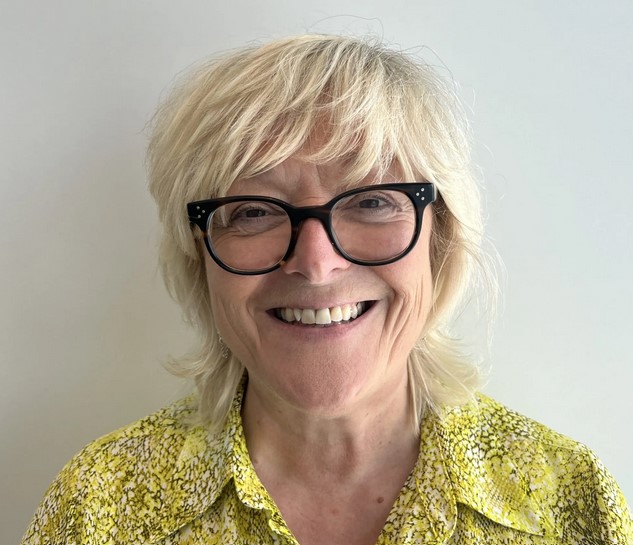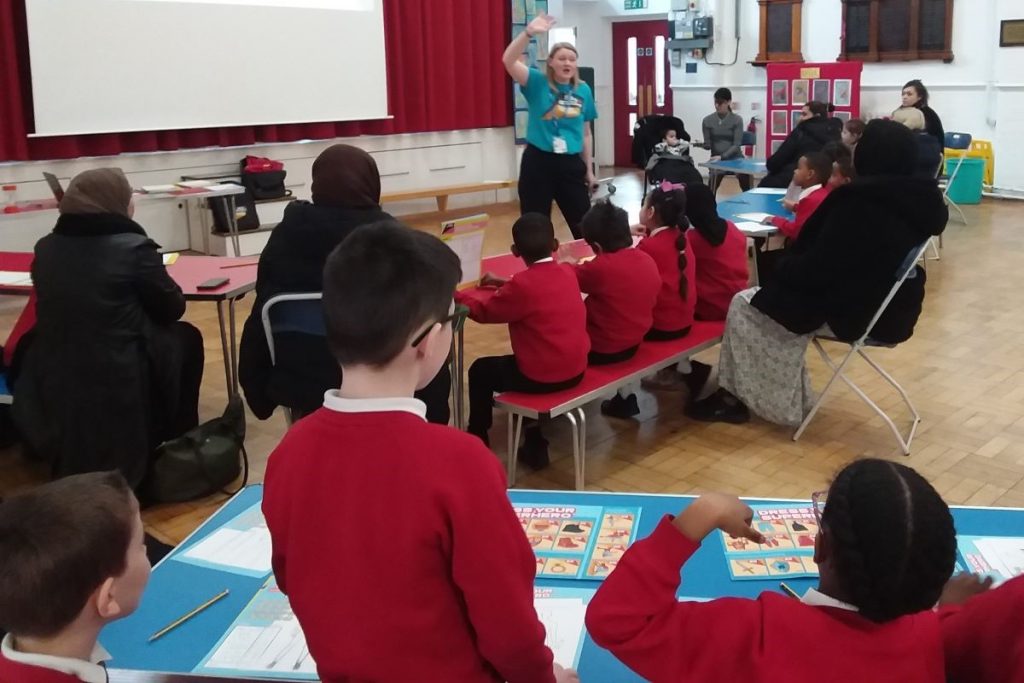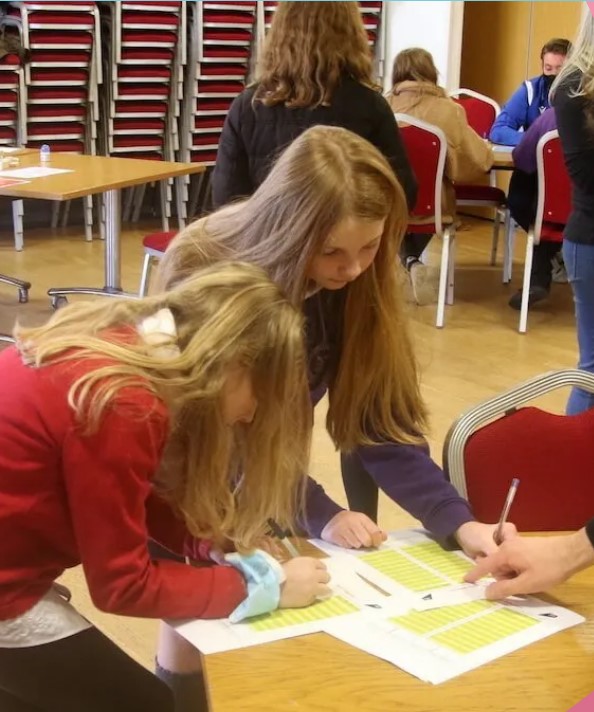Financial education, or the lack of it, is often attributed as one of the main reasons why people don’t engage with their finances and in turn with advice and planning.
But what if that wasn’t the case? What if future generations of clients and consumers were better equipped to make decisions surrounding their money and their financial lives?
In 60 schools in regional hubs across the UK, one small charity is trying to change the narrative around money and the accessibility of financial services as a whole.
The woman leading the charge is Sarah Marks, CEO at RedSTART, overseeing a programme of financial education aimed at primary school children and with social mobility at its heart.
Sarah chats to us about finding her way to financial education, building positive attitudes towards money at a young age, and what needs to change about the current system.
The ‘other’ diversity issue
Having spent much of her career in asset management, Sarah started doing some voluntary work with a couple of organisations, one of them being RedSTART. That later turned into a paid, part-time role as the charity’s development director looking after fundraising strategy.
Around this time she was interviewing for more permanent roles, but while the feedback was positive, the spark Sarah thought she should be feeling about these potential job opportunities just wasn’t there.
She says:
“I have a real passion for social mobility. Working in the City, I had realised that among all the other ambitions everybody has around diversity, one of the things that was definitely not prevalent in the sector was people from different social backgrounds. So I had been thinking a lot about that.
“I was feeling very neutral about the job applications I was progressing with, and just feeling like these would be the same job with another name over the door. My reaction was telling me that’s not where my heart lies anymore.”
When the previous RedSTART CEO stepped down, Sarah was approached about the job, and went on to work with her team to develop a different strategy and approach to the work the charity was doing.
RedSTART was already making progress in improving financial knowledge, but Sarah was keen to move beyond the model of one reactive workshop to something more structured. “With that style of intervention, the children had fun and definitely knew more than they did at the beginning, but the ambition I had wasn’t going to come from that.
“That ambition was to actually open these children’s minds up to a world they might otherwise struggle to engage with, or struggle with the confidence to engage with.”
The charity moved from delivering support to children aged eight to 13 to focus solely on working with primary schools, serving communities of greater disadvantage. The same children are seen repeatedly throughout their primary school life, from reception to year six (or P1 to P7 in Scotland).
Measuring the impact
The rationale behind having a more structured programme came from knowing that the government wasn’t going to take a more pro-active stance on delivering financial education in primary schools without the evidence to back it up.
An All Party Parliamentary Group on Financial Education had said as much – ‘someone’ needed to produce a longitudinal study that proved the impact of financial education in children’s early school years.
Sarah says: “So I thought: ‘Well if that’s what it’s going to take, let’s do that. Let’s be the organisation that leads on that.’”
RedSTART commissioned The Policy Institute at King’s College London to carry out a randomised controlled trial, involving all the schools RedSTART is working with. As a result, a seven-year study is underway to evaluate the impact of the charity’s work, with the first report published in February this year.

Sarah explains that it’s not just about measuring overall impact, but whether the impact changes depending on what age you start.
She also believes it’s not merely a case of putting financial education on the curriculum, and then thinking the issue of financial literacy is resolved.
“We’ve already got financial education on the curriculum in secondary schools, and it is not resulting in consistent delivery.
“Putting it on the curriculum is a definite marker. It’s a gateway, if you like. But if you really want schools to deliver this, if you’re really serious about changing the way it works, you’ve got to put in place training and support for teachers.
“You need high quality resources, and you’ve got to reward teachers and schools for taking the time to deliver this. Just putting it on the curriculum and not doing any of those other things won’t change anything, frankly.”
‘Building muscle memory’
Financial education is partly about learning, but it’s also about encouraging positive financial behaviour, and in time, allowing people to make informed financial decisions.
Alongside workshops, game-based activities and providing support to schools, RedSTART has also developed a money management app which sits on the school’s computer system. Children earn RedSTART pounds in exchange for taking part in quizzes in the app, with questions based around applied maths, money and what’s being taught through RedSTART’s programme.
Money earned goes into a current account, and there’s also a savings account paying interest which children can move their money to.
“We’re trying to build in some muscle memory around the fact that wherever money you earn gets paid, don’t necessarily leave it there. [The idea is] you’ve worked hard to earn that money – make it work hard for you.”
There is also a shop in the schools where children can use their RedSTART pounds to buy small ticket items like bubbles and stationery, or bigger items they can save up for, such as Lego sets or sports kits.
“We do a lot of work in the workshops with them from a really young age, talking about jobs, why people earn different amounts of money, different skillsets, because that is the thing – you’ve got to earn it first. Then, once you’ve earned it, you can start making decisions about spending it, saving it, keeping it and growing it.”
Reflecting the world we are in, older children also take part in exercises related to scams and fraud prevention, teaching them that not everything they get on their phone is legitimate.
What parents and kids say

Sarah says the comments she gets from schools, parents and the children themselves is “really heartwarming.”
In year six, the final workshop is run in a corporate office, and children get a tour of the building as well as getting to meet people in different kinds of jobs.
At a recent parent event at a London school, Sarah heard from one mum and dad whose daughter had embraced learning about finances.
“They said they had noticed how much better she was with money, how she’s always talking to them about what she’s saving for and what money she wants to put aside. She’d also said how excited she was about the upcoming corporate office trip.
“So that was lovely. The parents were signing up for their younger child to take part before we’d even presented our session.”
At the same event, Sarah was told another story about the impact the RedSTART programme has had.
At this school when children leave in year six, they do a leavers speech. One boy spent half his speech talking about how the most impactful thing he’d done in primary school was the trip out to an office. In this case it was Schroders, and he spoke about how he was determined to take his exams and go and work in that office.
“I thought: ‘That’s fantastic.’ This is exactly what this is about. He never would have dreamt of going into that building. But you take them to these places… and introduce them to another world. It’s not all University Challenge and double firsts from Cambridge. [It’s about saying] if you work hard and that’s what you want for your future, then you can find a path to go there.”
How you can help
For those who want to support RedSTART’s work, there’s a few options for getting involved:

Donate
Become a corporate partner. Partnering with RedSTART over one or even several years ensures the work in schools and the research can continue, and companies can also get involved in delivering workshops in their offices or in schools.
- Volunteer
Volunteers going into schools are always welcome but Sarah says while “that’s the fun end of what we do”, people can donate their time in other ways too, such as helping with questions and the development of the money management app, reporting and generally helping with the programme of activity.
Sarah says ultimately RedSTART is about giving children confidence.
“We can’t equip them for every situation they’re going to encounter. But if we can give them some basic skills, and the confidence to ask questions if they don’t understand, then I think that in itself will encourage engagement, which we’re not getting from people where they feel overwhelmed and intimidated by the financial services industry.”
She adds: “We need a financial education strategy, for children starting primary school but also going right the way through life. We don’t have that at the moment. We don’t have a strategy for people with money, when actually we’re increasingly asking people to stand on their own two feet and make quite tough decisions.
“Money is at the centre of everything you end up doing, because it drives all your decisions. Money isn’t a subject that sits off to the side that you can pick up and drop. Money is like an octopus’s tentacles – it’s everywhere.”
For more information on RedSTART’s work, to donate or become a corporate partner, visit the RedSTART website. If you’d like to lend your support, email redstart@redstarteducate.org





